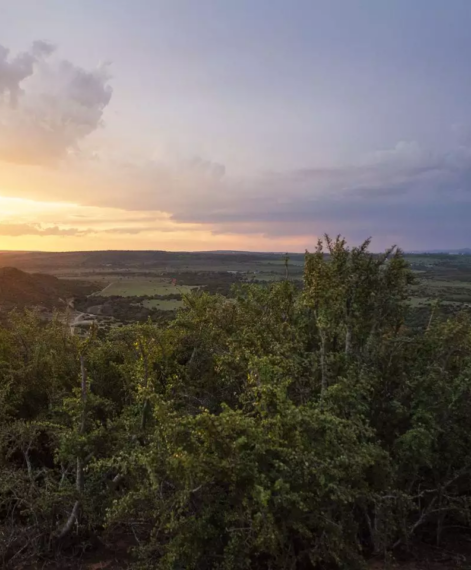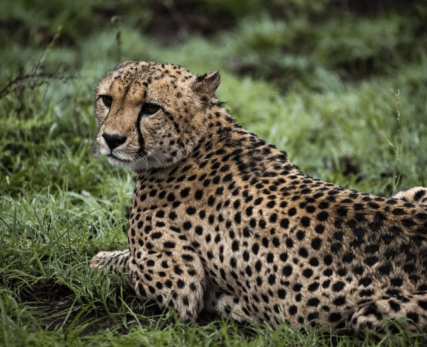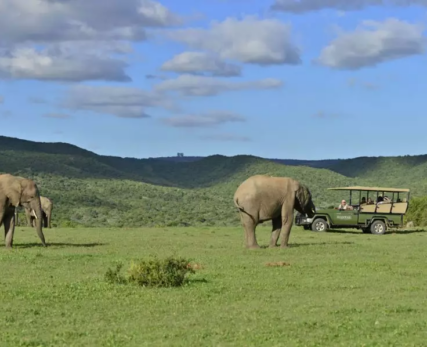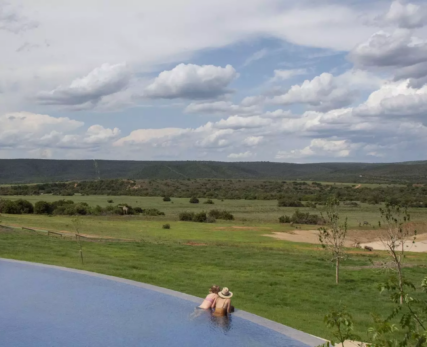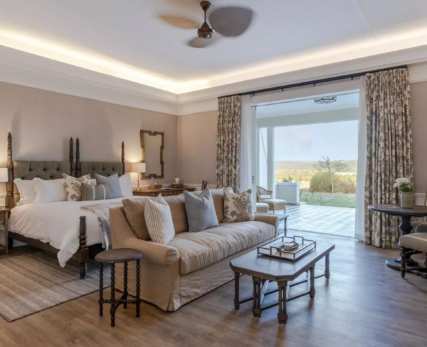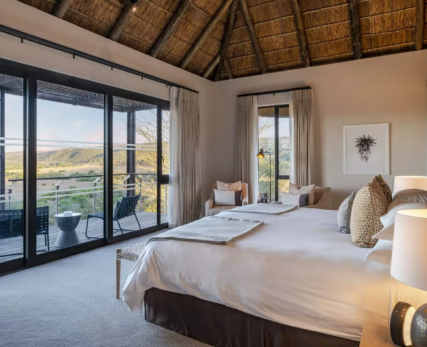The Summer in South Africa
Summer falls between December and February in South Africa. It is also South Africa’s peak season and one of the most popular seasons for tourists to visit, so it can get exceptionally busy in popular cities such as Cape Town. Average temperatures are about 25 degrees Celsius, while they can reach up to 30 degrees Celsius. The days are warm and long, allowing for ample time to participate in fun activities. Summer is one of the favourite seasons in South Africa for good reason.
The Autumn in South Africa
Autumn in South Africa falls between March and May. It is still relatively warm in March, however the temperature drops in April and May. It’s a great season to visit South Africa as it isn’t too hot nor too cold. Average temperatures are around 21 degrees Celsius. However, it’s warmer in March and cooler in May as it gets closer to winter. The days are warm and there are fewer crowds around if you prefer a quieter time to visit popular destinations in South Africa.
The Winter in South Africa
Winter months in South Africa are from June through to August. Winter consists of cooler, shorter days. However, South Africa generally experiences milder winters, and more so in the Eastern Cape province. Average temperatures reach about 16 degrees Celsius but differ significantly between provinces. Winter days are sunny and cool and the nights tend to get quite cold too. It’s a great time to travel to South Africa as it typically falls in low season in various areas. National parks and reserves are quieter and thus allow for privacy and exclusivity.
Wildlife activity is also easier to spot, thanks to sparse vegetation, as well as drier weather, drawing animals out to the waterholes. It’s seen by many as the best time to visit safari destinations in the country.
The Spring in South Africa
Spring falls between September and October. It is a wonderful time of year to visit South Africa as the temperature picks up and flowers start to bloom. The average temperature is about 20 degrees Celsius, making the weather extremely pleasant. The days are warm in the spring and tend to get a bit longer as the months go by. In terms of wildlife and safaris, many babies are born in spring, making it a special time of year to visit the national parks and private reserves of the country.
For a different perspective on the ideal time to travel to South Africa, check out Safari Consultants’ South Africa Seasons & When to Travel.
South Africa and Its Provinces
Seasons in South Africa vary significantly, depending on the province in the country you intend to travel to. However, it is a wonderful country to visit in the summer, autumn, winter or spring. The country has several provinces to choose from, as well as a plethora of things to do and see in each. In terms of scenery, we’ve listed what each province is known for below.
The provinces of the country are:
- Eastern Cape – Lies on the south-eastern South African coast and has plenty of untouched wilderness and natural beauty, cliffs and the Indian Ocean, not to mention ample wildlife.
- Free State – A province dominated by farmlands, blue skies and mountains. Towns are widely scattered. The Vaal and Orange rivers flow through the Free State.
- Gauteng – Referred to as the concrete jungle in South Africa, it is the economic hub of the country with the biggest population. Plenty of high rise buildings make up this province.
- KwaZulu-Natal – This province has lush, green scenery, the dramatic Drakensberg Mountains and gorgeous beaches along the Indian Ocean.
- Limpopo – This province is predominantly bushveld. Bordering on Mozambique, Botswana and Zimbabwe, it boasts stunning scenery, wildlife and insightful culture.
- Mpumalanga – One of the most popular destinations for tourists, it is filled with abundant wildlife and breathtaking scenery.
- North West – This province also borders Botswana and is home to the Cradle of Humankind, farmland and wildlife reserves.
- Northern Cape – The largest province in the country, albeit with the smallest population. Semi-desert land, rock art and the annual display of spring flowers make this province in South Africa unique.
- Western Cape – This diverse province has so much culture, history and beauty. The city of Cape Town, known as the Mother City, the Garden Route, with pristine beaches and an indigenous forest, are all found in the province.
The South African weather varies based on the geographical locations of these provinces, as well as the biomes within each province.
When Is the Best Time to Visit Shamwari?
Shamwari Private Game Reserve is located in the Eastern Cape in South Africa and experiences a moderately warm climate. The best time of the year to visit would depend entirely on the guests’ preferences: whether you enjoy the summer weather and busy crowded times or you’d prefer the cooler weather and privacy during your stay in South Africa.
The Eastern Cape enjoys a blended climate, combining sub-tropical and Mediterranean weather. The eastern parts of the province tend to experience high humidity levels and rainfall in comparison to the western parts, which have far drier weather conditions. In the off-season (i.e. winter) the temperatures range between 7-22°C, while summer temperatures can range between 16-36°C.
Contrary to popular belief, wildlife or game viewing is not really affected by weather, seasons or time of the year. Shamwari is home to the Big Five as well as ample animal, bird and plant species. It is a protected area and spans 25,000 hectares and five of South Africa’s biomes, making it incredibly impressive.
Game Drives in the Eastern Cape
Whilst vacationing at Shamwari in the Eastern Cape, guests are treated to two game drives per day. A daily program is followed, allowing for the best game viewing opportunities. Professional field guides are assigned to guests and teach them about the history of Shamwari and the area, animal habitats, animal tracks, as well as all the organisms in the region that call Shamwari home. They share their knowledge and expertise with guests to ensure it is an awe-inspiring and magical experience from the safety of a game viewing vehicle.
